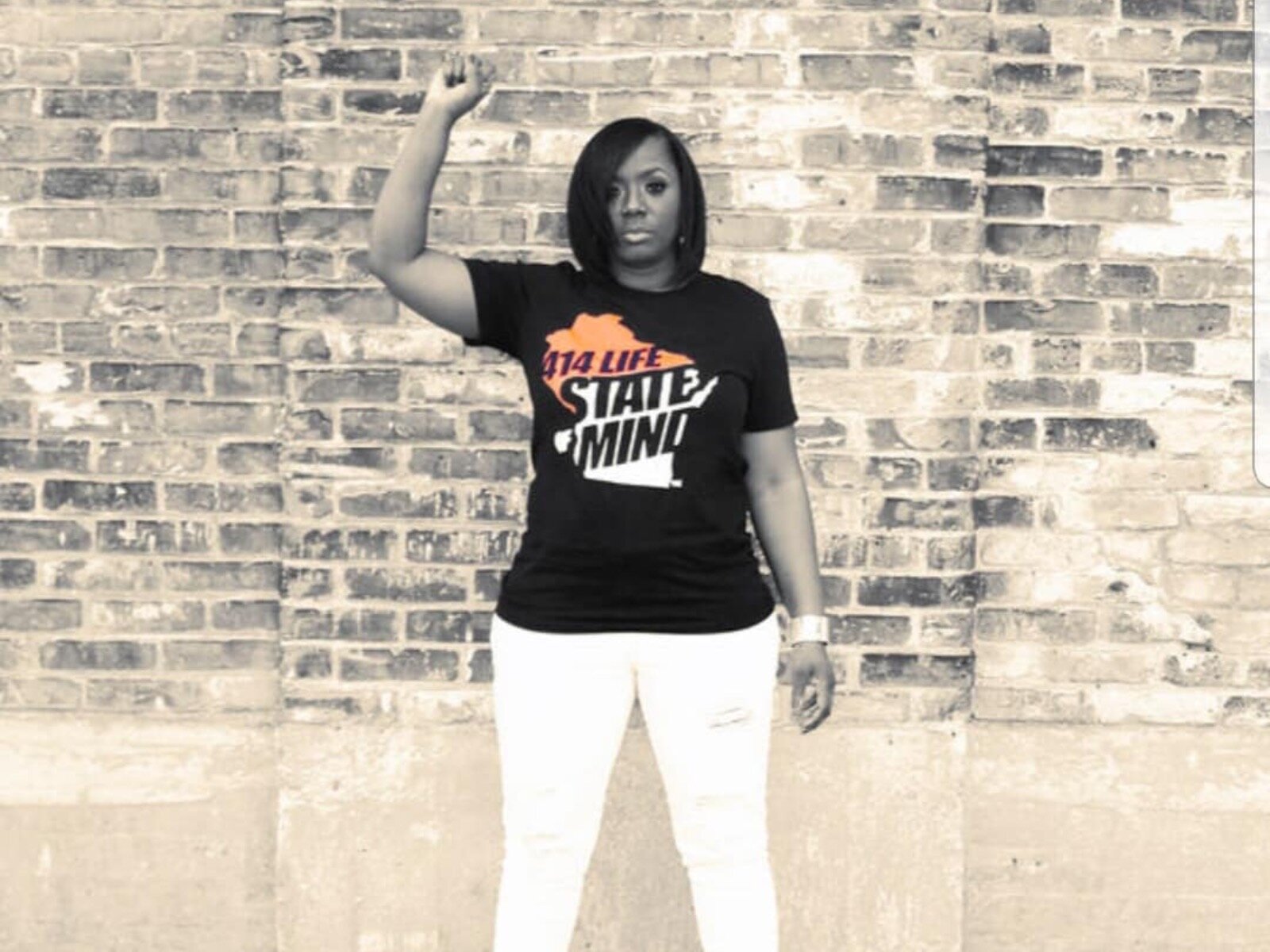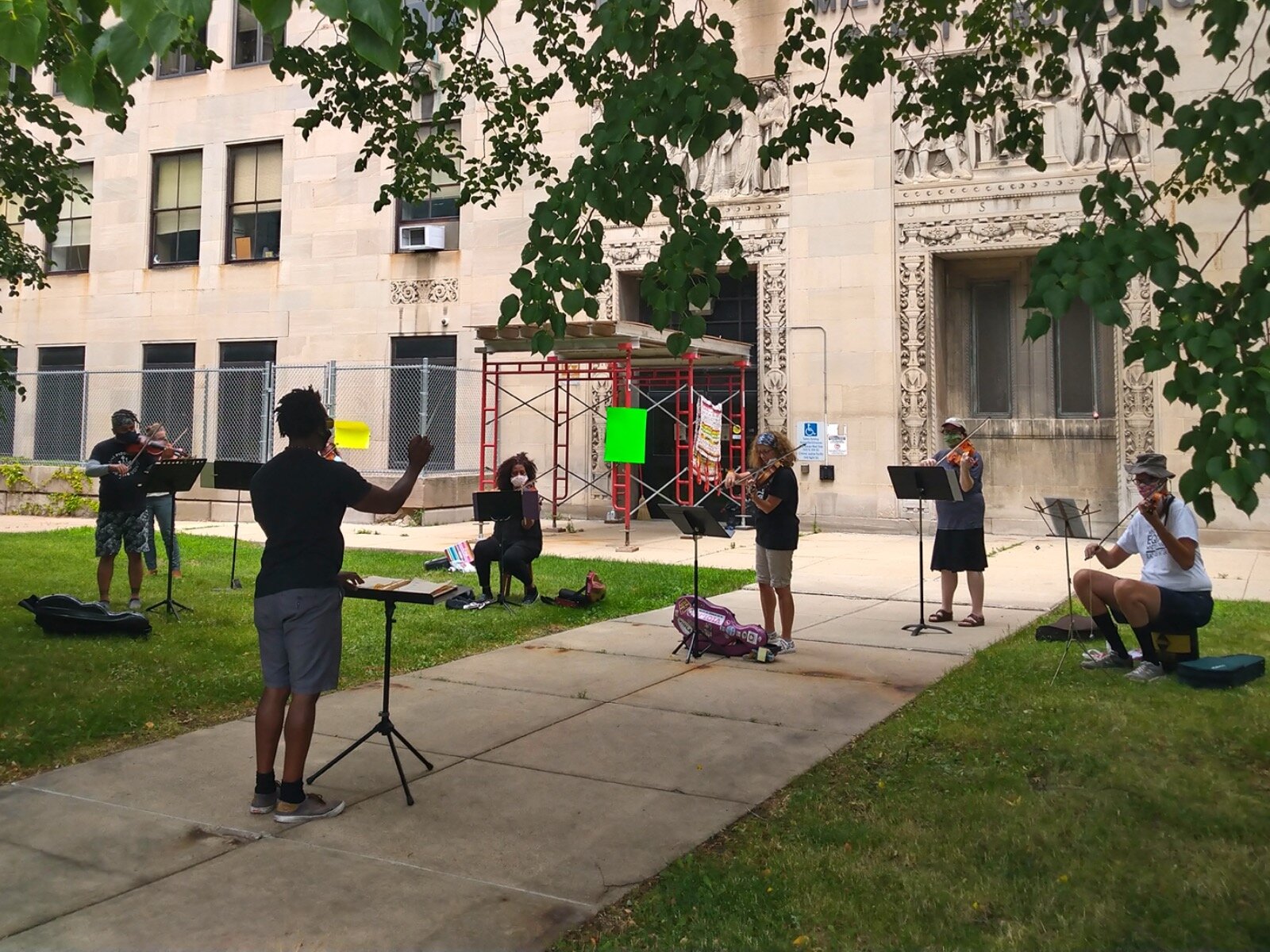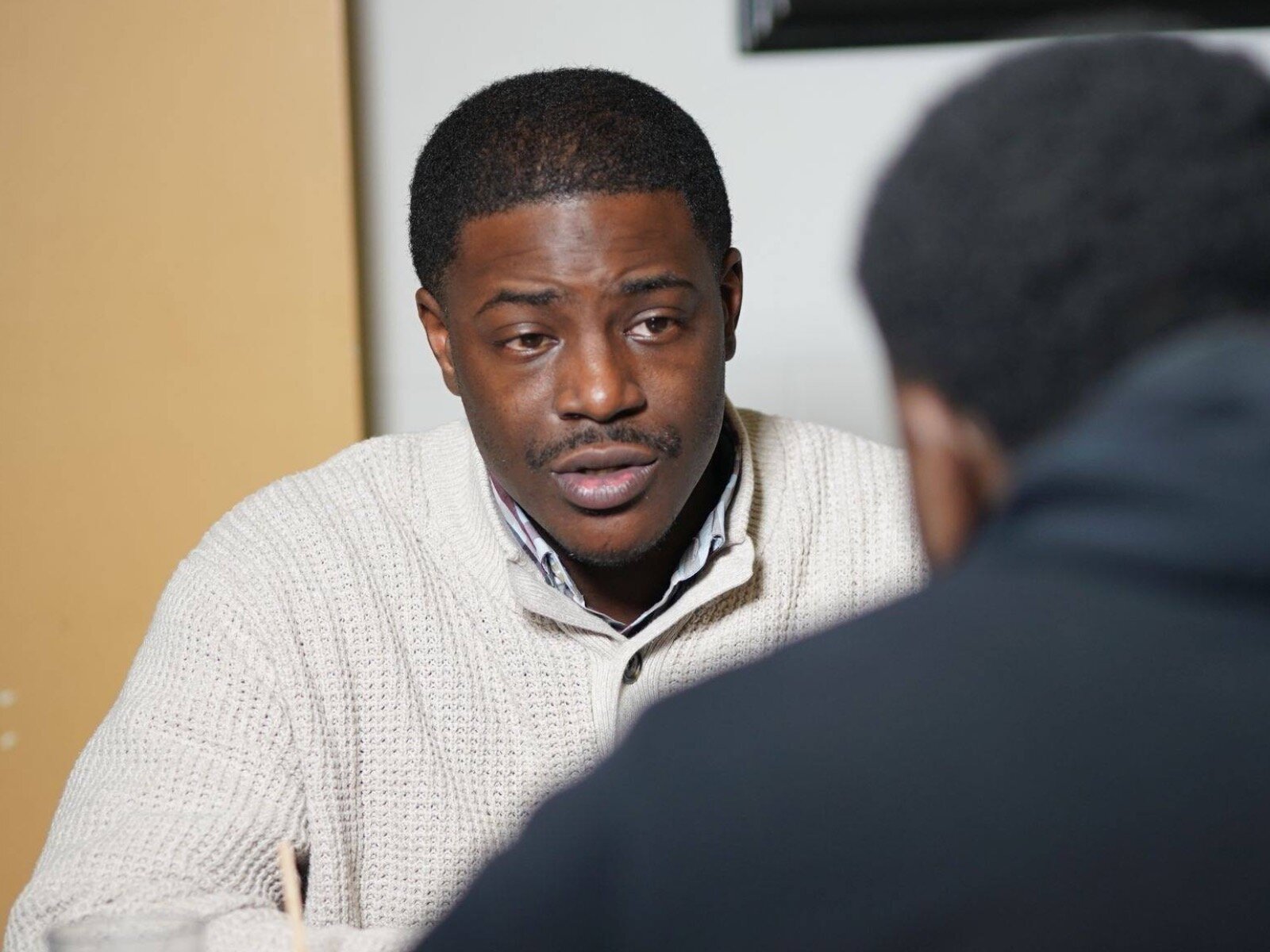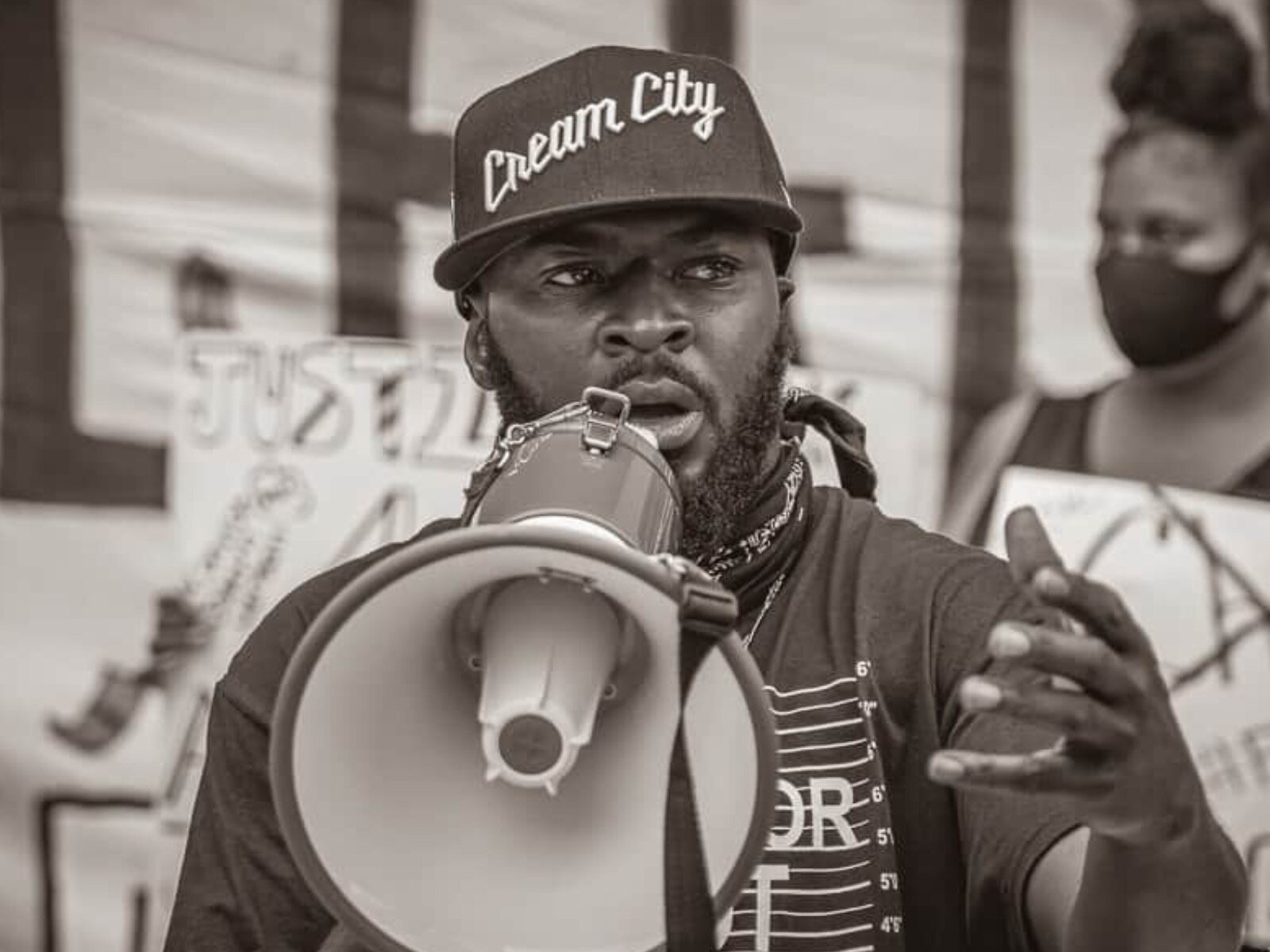Born in Milwaukee County on the far northwest side, Markasa Tucker grew up sheltered and away from the worst poverty of the city, though she would witness the vast inequality of Milwaukee’s west side when she ventured into the area with her father to check on properties he owned. However, she was not galvanized as an activist until much later in life.
After a career change from broadcast news to childcare, she witnessed the everyday struggles of families and, specifically, black women. In 2014, she was hired by Wisconsin Voices, an organization focused on engaging communities in the processes of policy and politics. But just as Tucker was deciding on which organization to partner with, Dontre Hamilton was killed by a police officer. She offered her services to the Hamilton family and was asked to head the Coalition for Justice in an administrative capacity.
Since then she has been promoted at Wisconsin Voices to the director of the African American Roundtable. In the past, the group worked with police, government committees and the community to encourage police reform. Now Tucker has her eyes on defunding and reinventing policing as we know it.
OnMilwaukee: Besides defunding the police, what were some of the recommendations that the Roundtable had regarding police?
Markasa Tucker: Some of the things people wanted were more police-community relations and better training for police. They wanted police to live in neighborhoods – those kinds of things. As the Roundtable has grown in its work, I wanted to commit to what I said I was going to do, which was to ensure that the community was returned.
But I also want to make sure that the community is educated about the history of policing and how reform has not worked for us. People have been trying to reform policy and policing since the beginning of time. This has not helped communities or people that look like George Floyd, or people that look like Breonna Taylor, or Dontre (Hamilton) or Joel Acevedo. Reform has not helped save lives. It has not helped protect Black and Brown people.
The Roundtable has moved away from reform conversation to "What does an alternative to policing looks like?" We shifted our work because we know that police ultimately don’t keep our communities safe. Our communities have been divested for so long while police have been invested in.
A 10 percent cut to police budgets is being discussed for 2021. Is that enough in your eyes? If not, what would you like to see?
Our ask actually is $75 million cut from police budgets – last year was $25 million. This year we thought we should go even higher because our people deserve more. The police are, I think, asking for $315 million which is almost 50 percent of the budget. This is while the health department, libraries and neighborhoods get under five percent. That cannot be a community that thrives. Ten percent is not enough, and we are still asking for a $75 million cut.
Even if we don’t get the cut this year, which we are still going to fight hard for, it will still be an ongoing conversation. We’ve gotten to this point where there is no going back to this conversation about how police don’t keep us safe. It even has our Common Council saying, "Oh, we’re considering a ten percent cut." When you start getting politicians talking about this, I don’t think there is any opportunity to go backward.
So, do you see these yearly goals to push for more cuts as a slow process to totally defund the police or reorganize the police?
We definitely think this is going to be an ongoing long process, but we know it's necessary. But when I think about my parents who came up during the great migration, who picked cotton in the fields, if they ever thought there would be a time where people were having conversations around reimagining the world without police.
As I am the product of those people, I hope that my daughter and 1-year-old nephew are the product of a world without police at some point. Generations of work at chipping away at police budgets will be a long haul. But it’s necessary for our people to live and thrive on this planet.
How has the conversation changed after George Floyd’s killing, as compared to Dontre Hamilton’s killing?
I think the work for the Coalition for Justice was the family wanted Officer Manney fired, but he wasn’t fired for Dontre’s death. He was fired for not following standard operating procedures. They were fighting along those lines and reform lines, like officers should have body cameras and things like that. There was a lot of conversation about more immediate wants versus, at this moment, we are talking about a lot of long-term wants.
Families (of victims) right now are interested in police reform. But the question for a lot of police abolitionists is how do you hold the tension of supporting families that want reform but still moving the agenda towards a bigger long term vision of defunding the police. But this national call to defund the police is taking precedent, and that’s where we are putting a lot of our energy – but also toward educating people about what that looks like.
Recently artists painted a number of murals of different activists, including you. How do you feel about that?
Oh my goodness gracious, that was interesting! So, someone reached out to me and asked would I mind, and I was like, if that’s what an artist wants to do. I’m not going to spite an artist on how they want to be a part of this moment of activism. I think a lot of times people forget that artists are a very important piece to the movement.
It was very exciting but also humbling. I felt very honored to have even been asked – and also for me it was very validating in that I am doing the work that God put me on this earth to do. I don’t need a mural to acknowledge my work, but I recognize and thank those who thought enough of me to paint me.
What has the African American Roundtable been working on?
Last year, on Juneteenth, we launched Liberate MKE, which was a campaign to eliminate 25 million dollars from the police department to go back into what the community wanted. We also surveyed 1,100 people in the community along with BLOC (Black Leaders Organizing Communities) and others to find out what the community wanted from the budget. The community said they wanted money and resources to go to employment and non-police violence prevention, along with housing projects and initiatives.
We talked people through the process of how to lobby and testify, and we organized them through a coalition model. Then we brought these people into the budget hearings in August of 2019. We were able to get hundreds and hundreds of people to show up and share their stories. When we went to testify, I don’t think the mayor and Common Council could deny that this was just a budget problem. In total we got almost $15 million deducted from the police, with $900,000 going to things we were asking for.
So, we want to continue to campaign and build on that, and that’s what we have been doing this year. We relaunched again the week of Juneteenth. It was very different this year because of COVID-19, but we did a series of learnings virtually on social media and through Zoom.
What replacement does the Roundtable envision for the future of policing?
So, we are in conversation about that. What we have learned is we don’t need all the answers to that. We can imagine and be creating with communities. We are encouraging conversations with the community around what they want to see and what they want those alternatives to look like.
Some of it is as simple as jobs, access to food and mental health services, and also to have the infrastructure and resources to address the root causes of violence. We have to encourage control over that city budget. The budget really is in the hands of the people and where they want funds to go.







